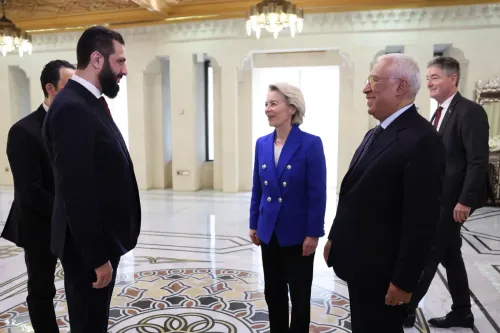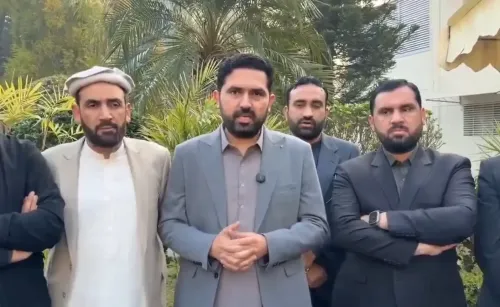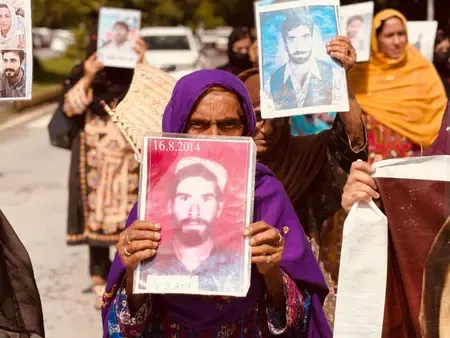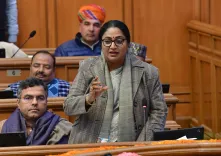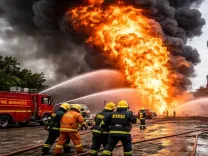Can IMEC Become a Transformative Initiative for Israel?
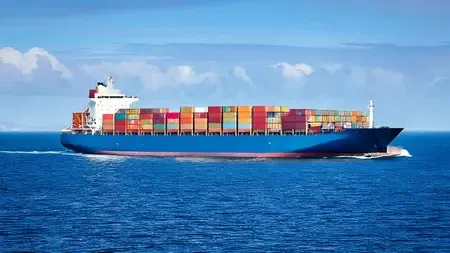
Synopsis
Key Takeaways
- IMEC is a strategic initiative aimed at enhancing connectivity between Asia and Europe.
- It provides a potential 40% reduction in transit times.
- Israel's role is crucial as a regional partner in this initiative.
- The initiative faces significant security challenges.
- Regional instability impacts investor confidence in IMEC.
Jerusalem, Aug 11 (NationPress) As global shipping routes encounter heightened risks, including Houthi attacks in the Red Sea and increasing unrest in Gaza and Lebanon, the India–Middle East–Europe Economic Corridor (IMEC) has emerged as a vital alternative to China's Belt and Road Initiative (BRI), according to a report published on Monday.
Unveiled during the 2023 G20 Summit under India's leadership, the IMEC represents a thorough geo-economic framework aimed at transforming the flow of goods, energy, and data between Asia and Europe.
As reported by The Jerusalem Post, the IMEC has the potential to act as a transformative initiative for Israel, enhancing connectivity and redefining its strategic importance between Asia and Europe. The report emphasizes that Israel should aim to be more than just a transit hub; it needs to become an active regional player in defense and technological innovation.
According to Lauren Dagan Amos, a member of Forum Dvorah, which advocates for women in Israel’s foreign and defense policy, the IMEC initiative presents both opportunities and intricate security challenges. Israel is positioned at the heart of a new geostrategic vision focused on redefining trade pathways linking Asia and Europe. With backing from India, the US, Gulf nations, and the EU, the IMEC is viewed as a Western-led alternative to China's expanding influence. IMEC aims to foster high-speed land freight transit, green energy corridors, and next-gen digital connectivity infrastructure.
The report highlights Israel's ambition to leverage its strategic assets, such as the Port of Haifa, the Valley Railway, and planned integrations into regional energy and data frameworks. However, this positioning also heightens Israel's vulnerability to security threats from various state and non-state actors. Israel's participation in the IMEC, as outlined by Dvorah, stems from its geographical location and emerging role as a regional partner, reinforced by the Abraham Accords and involvement in the I2U2 Forum, which includes India, Israel, the UAE, and the US.
The geo-economic benefits of IMEC could lead to a 40% reduction in transit times, lower transport costs, and a direct link between Gulf ports and Haifa, facilitating seamless rail and maritime flows to European markets. Nevertheless, the deteriorating security landscape has raised concerns about civilian and commercial infrastructure becoming prime targets, which poses significant investment risks.
The ongoing conflict in Gaza, missile threats from Hezbollah, and Houthi assaults on shipping routes in the Red Sea since 2023 have severely undermined regional stability and diminished investor confidence in the IMEC. Attacks on commercial vessels, particularly in the Bab el-Mandab Strait, have compelled shipping companies to divert routes through the Cape of Good Hope, adding an additional week to transit times and approximately USD 1 million in fuel costs per journey. These disruptions have resulted in a projected 20% decline in global shipping capacity and increased insurance premiums.
As noted in the report, Hezbollah's actions have revealed the vulnerability of the Port of Haifa, which serves as the western endpoint of the IMEC. This situation has led to a growing preference among shipping firms for alternative routes. Beyond security threats, the IMEC faces regional opposition, notably from Turkey, which views it as a geopolitical rival that undermines its strategic position, while Egypt expresses concern over potential revenue losses from the Suez Canal.
Due to this complex environment, Israel must formulate a comprehensive, multi-layered security strategy that emphasizes close strategic cooperation with India and Saudi Arabia, especially regarding the safeguarding of critical infrastructure like ports, railways, and energy corridors.


